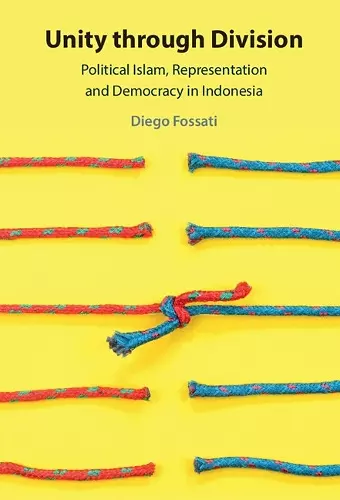Unity through Division
Political Islam, Representation and Democracy in Indonesia
Format:Hardback
Publisher:Cambridge University Press
Published:22nd Sep '22
Currently unavailable, and unfortunately no date known when it will be back
This hardback is available in another edition too:
- Paperback£26.99(9781009203067)

With a focus on Indonesia, this book studies representation to explain why public satisfaction with democracy may increase despite democratic backsliding.
This book studies a puzzle observed in contemporary Indonesian politics: while the quality of democracy in Indonesia has deteriorated in recent years, public satisfaction with democracy has increased. To explain this development, the book studies ideological representation, an aspect of Indonesian democracy that is often overlooked.Indonesia, like many other countries around the world, is currently experiencing the process of democratic backsliding, marked by a toxic mix of religious sectarianism, polarization, and executive overreach. Despite this trend, Indonesians have become more, rather than less, satisfied with their country's democratic practice. What accounts for this puzzle? Unity Through Division examines an overlooked aspect of democracy in Indonesia: political representation. In this country, an ideological cleavage between pluralism and Islamism has long characterized political competition. This cleavage, while divisive, has been a strength of Indonesia's democracy, giving meaning to political participation and allowing a degree of representation not often observed in young democracies. While the recent resurgence of radical Islam and political polarization in Indonesian politics may have contributed to democratic erosion, these factors have simultaneously clarified political alternatives and improved perceptions of representation, in turn bolstering democratic participation and satisfaction. This compelling book effectively challenges the wisdom of the role of Islam in Indonesian political life and provides a fresh analysis for debates on democratic backsliding in Indonesia and beyond.
'Fossati designed a series of surveys to find out why the rise of political Islam after Indonesia's democratic transition in 1998 has not destabilized the country's politics. Patronage relations play a big role in elections, as do economic issues, but he finds that religious affiliations are a major determinant of how people vote.' Andrew J. Nathan , Foreign Affairs
'Recommended.' A. R. Abootalebi, Choice
ISBN: 9781009203036
Dimensions: 236mm x 159mm x 21mm
Weight: 511g
242 pages